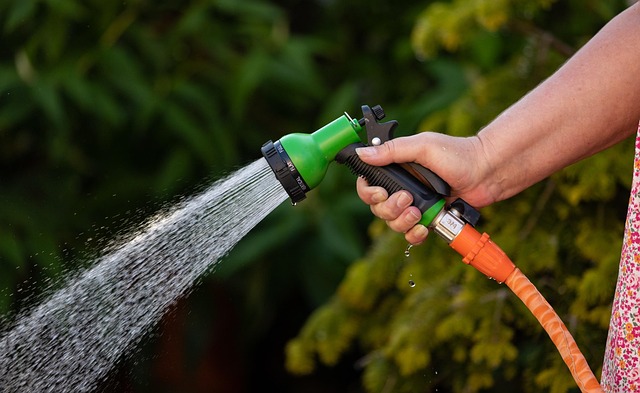Water-Efficient Irrigation Systems for Modern Gardens
Modern gardening faces increasing challenges with water conservation and climate variability. Water-efficient irrigation systems have become essential tools for sustainable landscaping, helping gardeners maintain healthy plants while reducing water consumption. These innovative systems combine technology with smart design principles to deliver precise watering solutions that adapt to different garden types, from urban container gardens to expansive outdoor spaces. Understanding the various irrigation options available can transform your gardening approach and create more resilient landscapes.

Container Gardening Irrigation Solutions
Container gardening presents unique irrigation challenges due to faster soil drainage and increased exposure to weather conditions. Drip irrigation systems work exceptionally well for container setups, delivering water directly to plant roots through small tubes or emitters. Self-watering containers incorporate built-in reservoirs that maintain consistent soil moisture levels, reducing maintenance requirements while preventing overwatering. These systems prove particularly valuable for urban gardening environments where space constraints and varying microclimates demand precise water management.
Urban and Vertical Garden Watering Systems
Urban environments require specialized irrigation approaches that maximize water efficiency in limited spaces. Vertical gardening systems benefit from gravity-fed drip networks that distribute water evenly across multiple plant levels. Micro-spray systems provide gentle, uniform coverage for vertical installations while minimizing water waste through targeted delivery. Smart controllers can integrate weather data to adjust watering schedules automatically, ensuring optimal plant cultivation regardless of changing climate conditions in urban settings.
Sustainable Landscaping Through Smart Irrigation
Sustainable landscaping relies heavily on efficient water distribution systems that support native plants and climate-appropriate cultivation practices. Zone-based irrigation allows different garden areas to receive customized watering based on plant needs, soil types, and drainage characteristics. Rain sensors and soil moisture monitors prevent unnecessary watering during wet periods, while programmable timers ensure consistent care during dry spells. These technologies support long-term garden maintenance while reducing environmental impact.
Outdoor Furniture and Lighting Integration
Modern irrigation design considers the entire outdoor living space, including furniture placement and lighting systems. Underground irrigation lines can be planned around permanent outdoor furniture installations and pathway lighting to avoid conflicts during maintenance. Pop-up sprinklers and retractable drip lines maintain clean aesthetics while providing necessary plant care. Proper planning ensures that irrigation systems complement rather than compete with other landscape elements.
Soil and Drainage Considerations for Efficient Watering
Effective irrigation begins with understanding soil composition and natural drainage patterns. Clay soils require slower, deeper watering cycles to prevent runoff, while sandy soils benefit from more frequent, lighter applications. Proper soil preparation and amendment improve water retention and reduce irrigation needs over time. Installing drainage solutions in areas prone to waterlogging prevents root damage and optimizes water distribution throughout the garden.
Materials and Weather-Resistant System Components
Durable irrigation materials ensure long-term system reliability across varying weather conditions. UV-resistant tubing and corrosion-proof fittings withstand outdoor exposure while maintaining consistent performance. Freeze-resistant components prevent winter damage in colder climates, while heat-tolerant materials function reliably during summer temperature extremes. Quality materials reduce maintenance requirements and extend system lifespan, making them cost-effective investments for serious gardeners.
| System Type | Provider | Cost Estimation |
|---|---|---|
| Drip Irrigation Kit | Rain Bird | $50-150 |
| Smart Controller | Hunter Industries | $100-300 |
| Micro-Spray System | Netafim | $75-200 |
| Self-Watering Containers | Lechuza | $30-150 |
| Professional Installation | Local Contractors | $500-2000 |
Prices, rates, or cost estimates mentioned in this article are based on the latest available information but may change over time. Independent research is advised before making financial decisions.
Water-efficient irrigation represents a fundamental shift toward responsible gardening practices that balance plant health with environmental stewardship. These systems offer practical solutions for gardeners facing water restrictions, climate challenges, or simply seeking more sustainable cultivation methods. By selecting appropriate irrigation technologies and implementing proper installation techniques, modern gardens can thrive while minimizing their environmental footprint. The investment in efficient watering systems pays dividends through reduced water bills, healthier plants, and more resilient landscapes that adapt to changing conditions.




